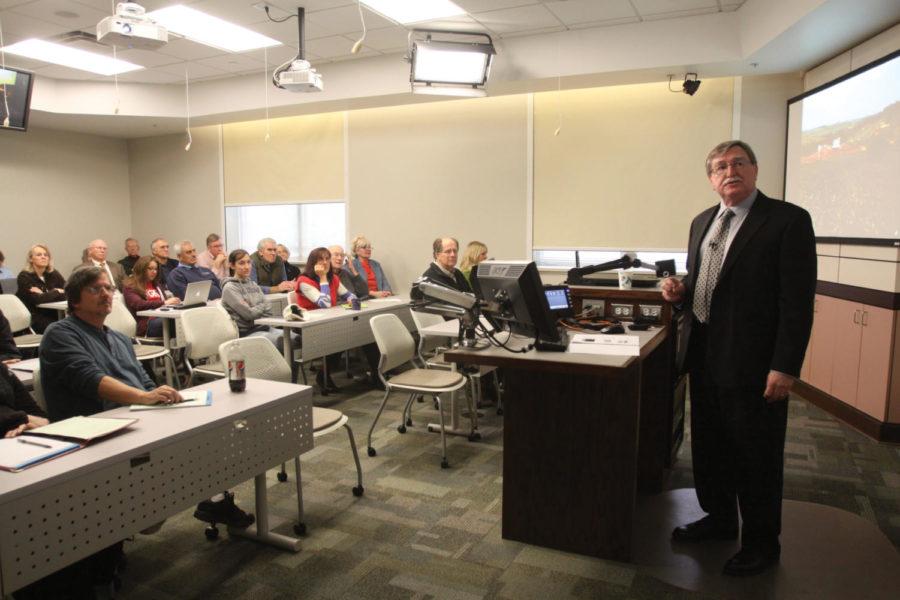Rasmussen speaks at final Leopold forum
December 5, 2011
Mark Rasmussen spoke Monday afternoon about his plans for the future of the Leopold Center for Sustainable Agriculture, if he were chosen the new director.
Rasmussen began his presentation by giving a bit of his background. Originally from northeast Nebraska, Rasmussen grew up in an agricultural community.
“I feel growing up as a farm kid has molded me,” he said.
When the family farm ended, Rasmussen went off to graduate school while his dad started retirement. At the University of Illinois, Rasmussen studied cellulose degradation by rumen bacteria, an area of research that has remained one of his focuses through his career.
Rasmussen is currently a supervisory microbiologist and director of the Division of Animal and Food Microbiology in the Office of Research at the U.S. Food and Drug Administration’s Center for Veterinary Medicine in Laurel, Md. The department Rasmussen works in focuses its efforts on antimicrobial resistance.
Rasmussen presented a few goals he wants to accomplish if chosen the new director of the Leopold Center. Among them, Rasmussen stressed the importance of maintaining the Leopold Center as a forum for the inconvenient, controversial and uncomfortable questions about sustainable agriculture. An example is the link between energy and food, a relation that has always existed but in recent years has gotten tighter.
“These things need to get talked about,” Rasmussen said.
Another goal of Rasmussen’s is to foster the growth of the Leopold Center to expand recognition as a global leader on the issues of agriculture, food and sustainability.
Rasmussen concluded his presentation by stating that he would be willing to take chances on new initiatives.
“Crazy ideas just might work,” Rasmussen said.
An example Rasmussen gave would be to ask Iowa farmers to consider setting aside a road ditch or stream bank. By doing this, farmers could make a significant impact on erosion, water quality, wildlife habitat and the Iowa landscape.
Rasmussen’s presentation, along with the presentations from Abdullah Jaradat and Thanos Papanicolaou, are available to view on the Leopold Center website.

















